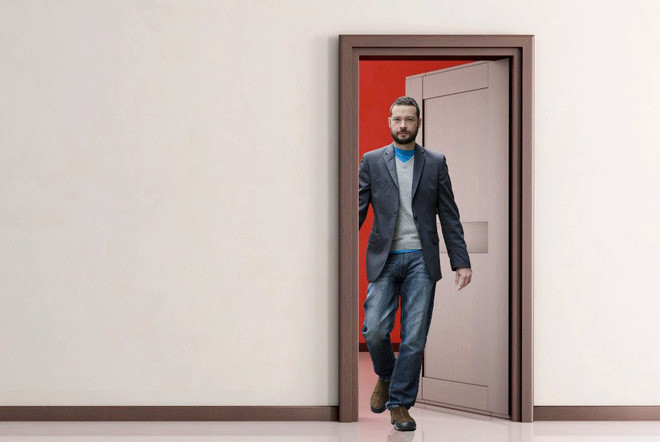The effect makes us go through the door and forget what we intend to do
Is it that we often forget what we need to do because we are not focused, negligent or other reasons?
Imagine that, one day, you take the car out the door to prepare to go to work.
Suddenly you realize that I have forgotten something important in the room. Hurry up and go to the room, but just through the door, you're like you've been "brainwashed" and can't remember what you're coming back to.
You are not the only one who suffers from this situation and so many people do.
This may even appear in people with the most "superhuman" memory. So what is the reason for this ambiguity? The answer is due to "door effect" .

As you walk through the door, you seem to be "brainwashed" and can't remember what you're coming back to.
What is the "door effect"?
According to psychologists, the "door effect" phenomenon is understood: "After we go through the door to enter a room, we will not fully understand what we are doing there."
In the early days of studying the human brain, scientists thought that human memory is like a multi-compartment cabinet, each of which will store the life experience that humans cultivate.
These drawers will remain "seated" until we need to pull them out. When we need to re-apply the old experience, we simply pull the right drawer.
But according to memory formation, our brains are much more complex. Even recent studies show that brain activity may appear to change in a person's life. Previously, people still believed, the brain focused on developing only in childhood and then will not change.

When going through the door of the dressing room, people will forget everything they need to do.
In a recent study of the "door effect", Gabriel Radvansky and colleagues from the University of Notre Dame discovered an interesting fact. That's when going through the door of the locker room people forget everything they need to do.
In the first study, they tested on dozens of volunteer groups. The group of attendees will be navigated through a virtual reality environment consisting of 55 large, small rooms and monitored via a TV screen. Large room is arranged with two tables located at the beginning and end of the room, while small rooms have only one table, on each table is a virtual object.
The participant's task is to pick up the object and place it on another table, then continue to pick up a new object.
The team observed that, whenever participants go through an open entrance, their memory performance decreases. They didn't remember what to do with the object when they entered the changing room.
Next, the researchers examined the door effect by using actual room space.
It is interesting that the change of space does not improve the memory performance of participants as they pass through the door.

So what caused this "irony" door effect?
Currently, there is no specific explanation for this phenomenon. But believe psychologists, going through the door and entering a room will create a mental "obstacle" in the brain.
This hypothesis comes in a memory study, demonstrating that those who passed through the door had to face "divisions" in their memories.
Moreover, people also believe walking through the door - old memory will be removed, giving way to new things. In scientific terms, a brief experience from one room to another is called a "position update effect".
- Depression is becoming more and more popular
- Handbag reminds you to forget
- Why do we sometimes forget what I was just about to say?
- For a long time, forget some things
- Having just left the door, I forgot what to do, how did science explain it?
- How to use safe rolling door
- Alcohol makes people forget
- Why do passengers always have to get on or off the plane by the door on the left?
- Key points of the car door lock system
- Is it possible to open the plane when flying?
- Secrets of the Sun Door
- What makes many people forget to eat and forget to watch the U23 semifinals in Vietnam this afternoon?
 Green tea cleans teeth better than mouthwash?
Green tea cleans teeth better than mouthwash? Death kiss: This is why you should not let anyone kiss your baby's lips
Death kiss: This is why you should not let anyone kiss your baby's lips What is salmonellosis?
What is salmonellosis? Caution should be exercised when using aloe vera through eating and drinking
Caution should be exercised when using aloe vera through eating and drinking